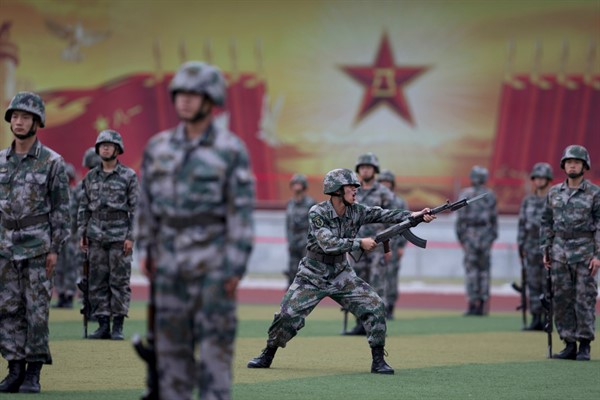There is perhaps nothing so difficult or so important as thinking independently in the face of a gathering consensus. Very few people have the courage displayed by Rep. Barbara Lee, who just three days after the attacks of 9/11 cast the sole vote in Congress opposing the Authorization for Use of Military Force, which gave the Bush administration broad discretionary powers to wage war against terrorists.
Lee’s opposition was not based on naïveté or ideological purity, both of which can be the source of what otherwise resembles iconoclastic thinking. Rather, she had the prescience and lucidity to see the dangers of granting such broad war powers to the executive. Almost 20 years later, very few now argue that she was wrong to be alarmed. Three presidential administrations have already used that congressional authorization to engage the U.S. military in wars and conflicts far afield from Afghanistan and against adversaries that, though unsavory, have no link to al-Qaida. There is no reason to believe the Biden administration won’t be the fourth.
A similar challenge is now arising with regard to the U.S. foreign policy debate over China. The hardening of attitudes and the emergence of a sharper, more confrontational consensus to managing the challenge posed by China’s rise as a peer competitor to the U.S. has been nothing short of startling. By the end of the Obama administration, the shift toward getting tougher on China—on everything from its unfair trade practices to its belligerent posture in the South China Sea—had already begun. It figured prominently as a campaign issue in the 2016 U.S. presidential election. While the bilateral trade imbalance in particular was a bugbear of Donald Trump, there was every indication that Hillary Clinton would have pursued a sharp-elbowed reset of bilateral relations had she won the presidency instead.

